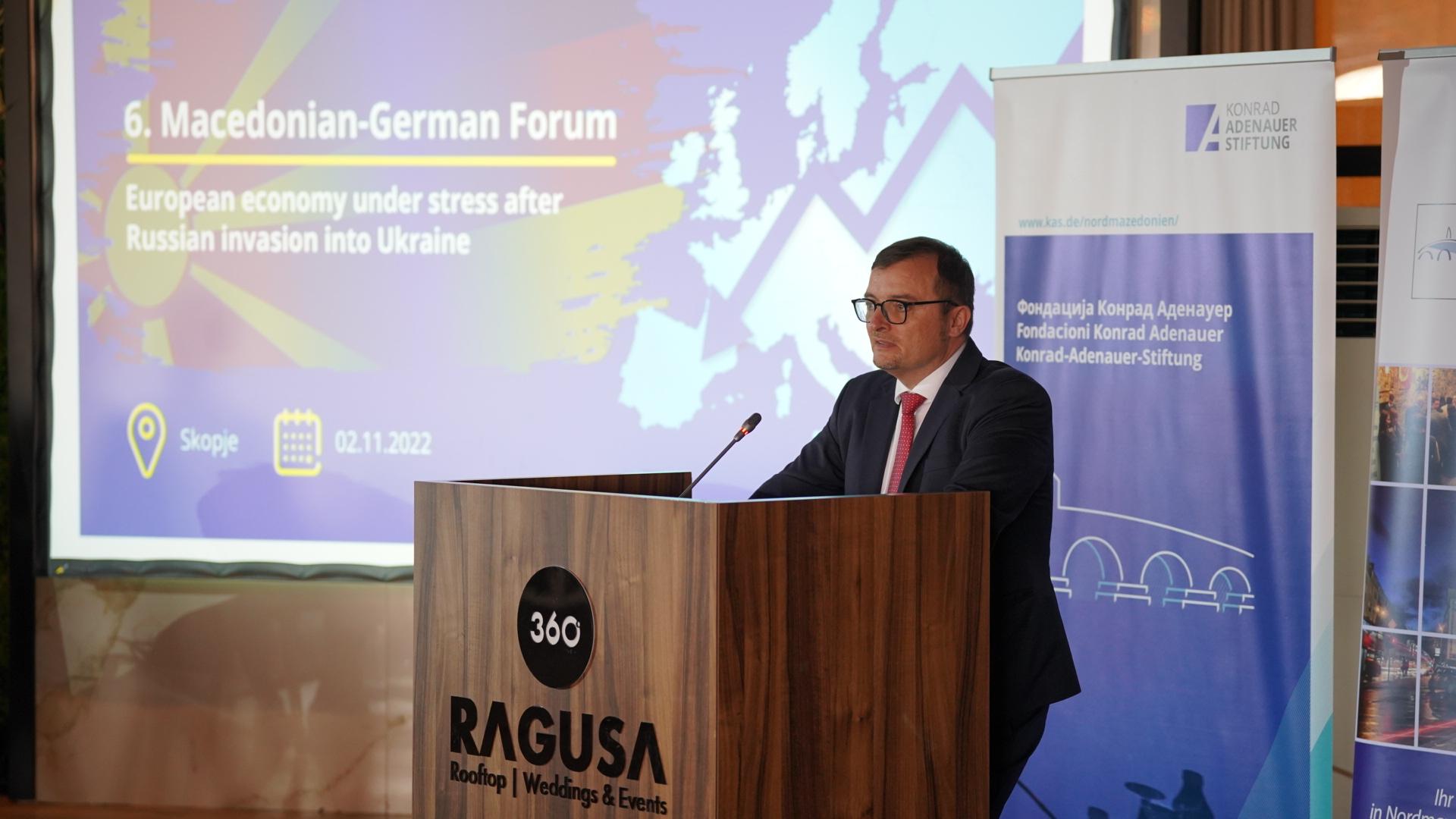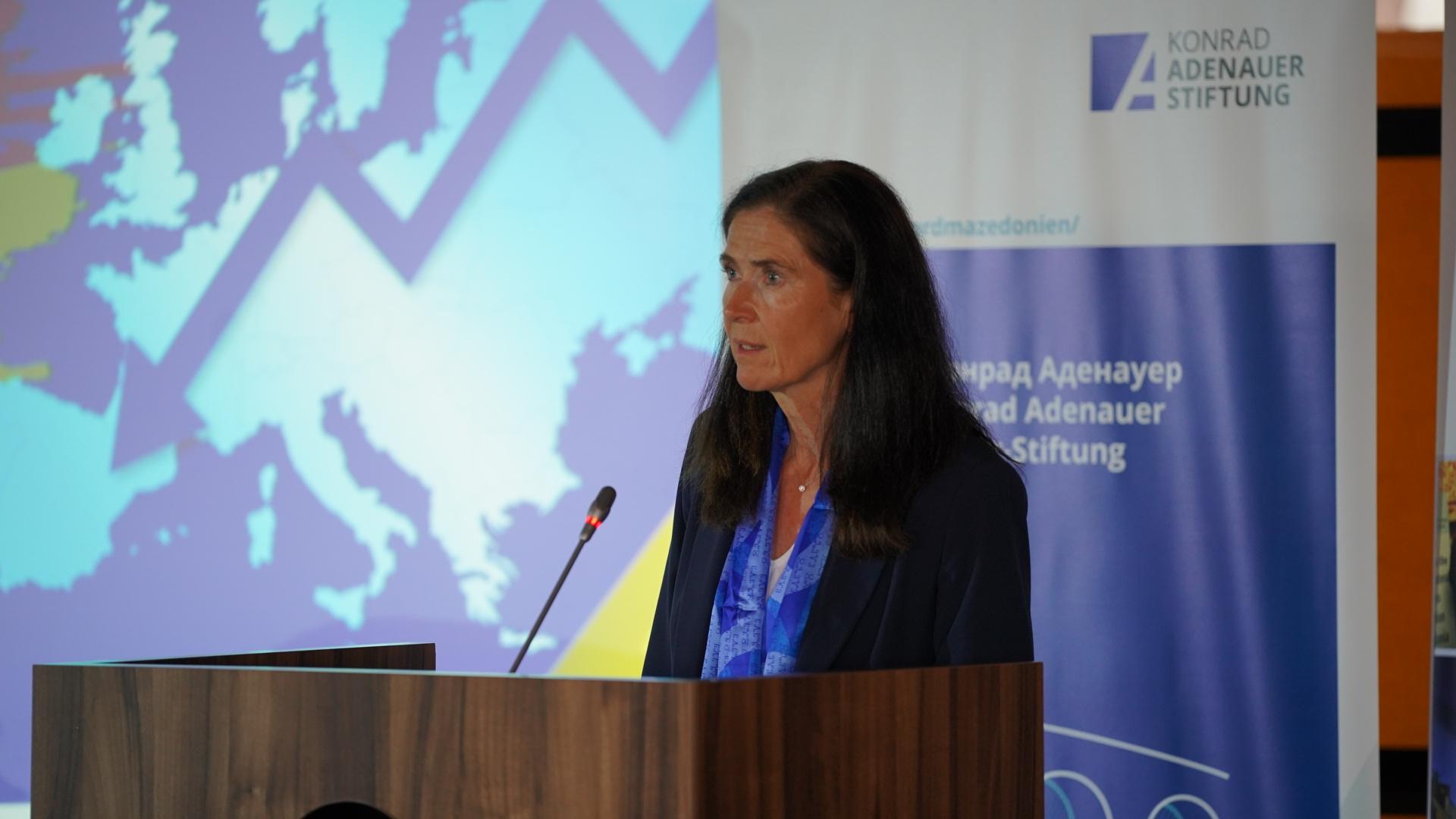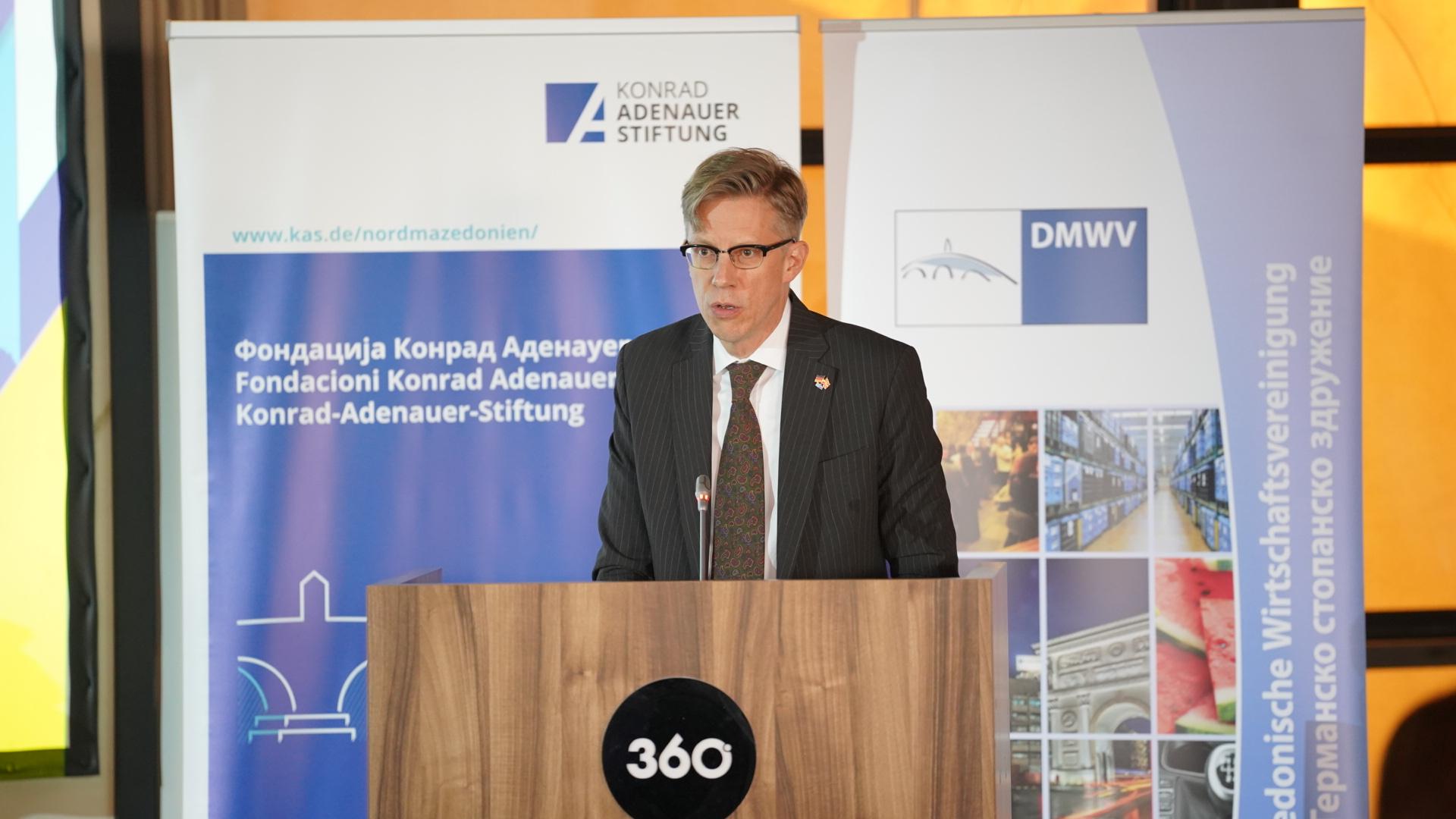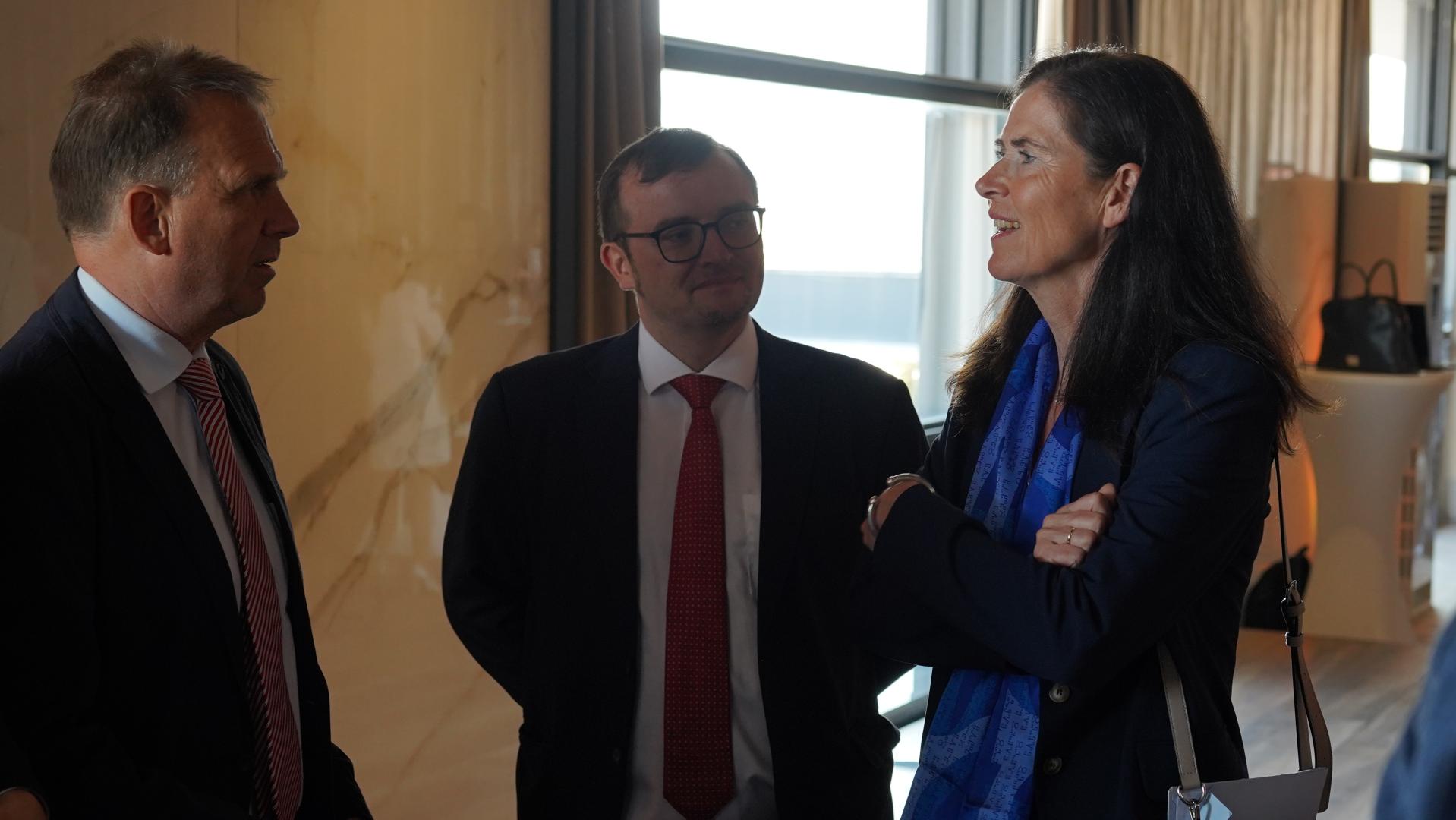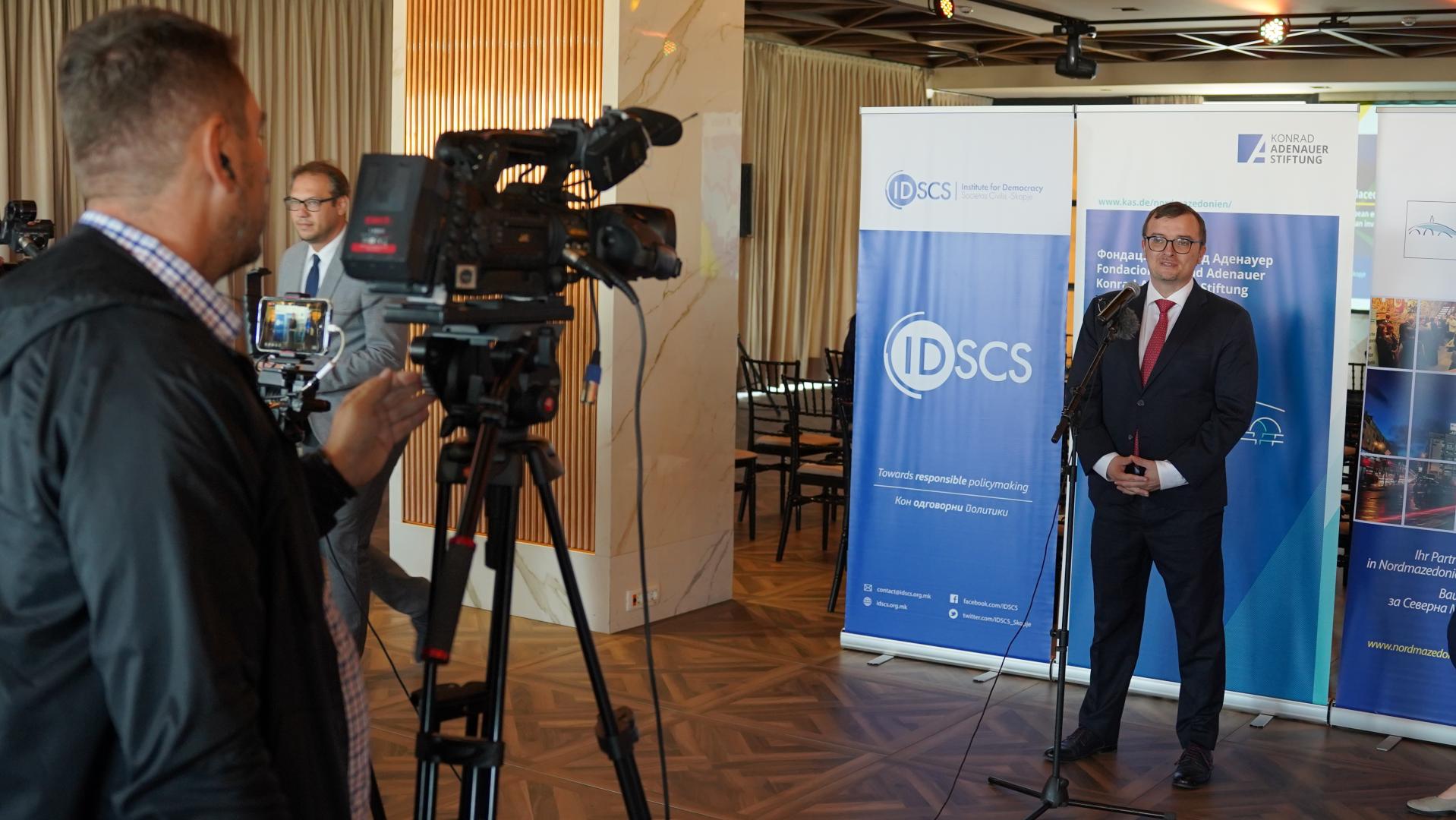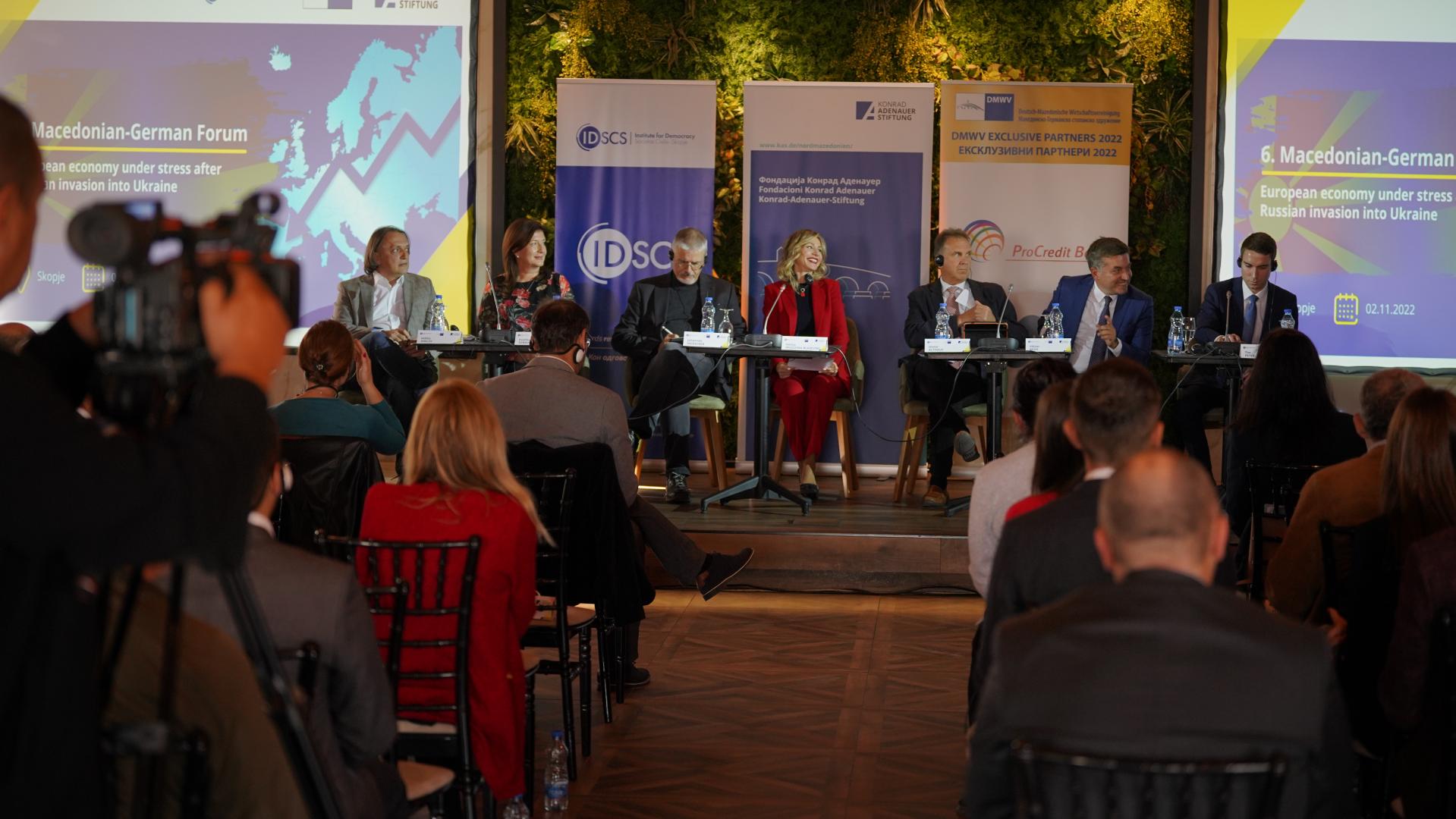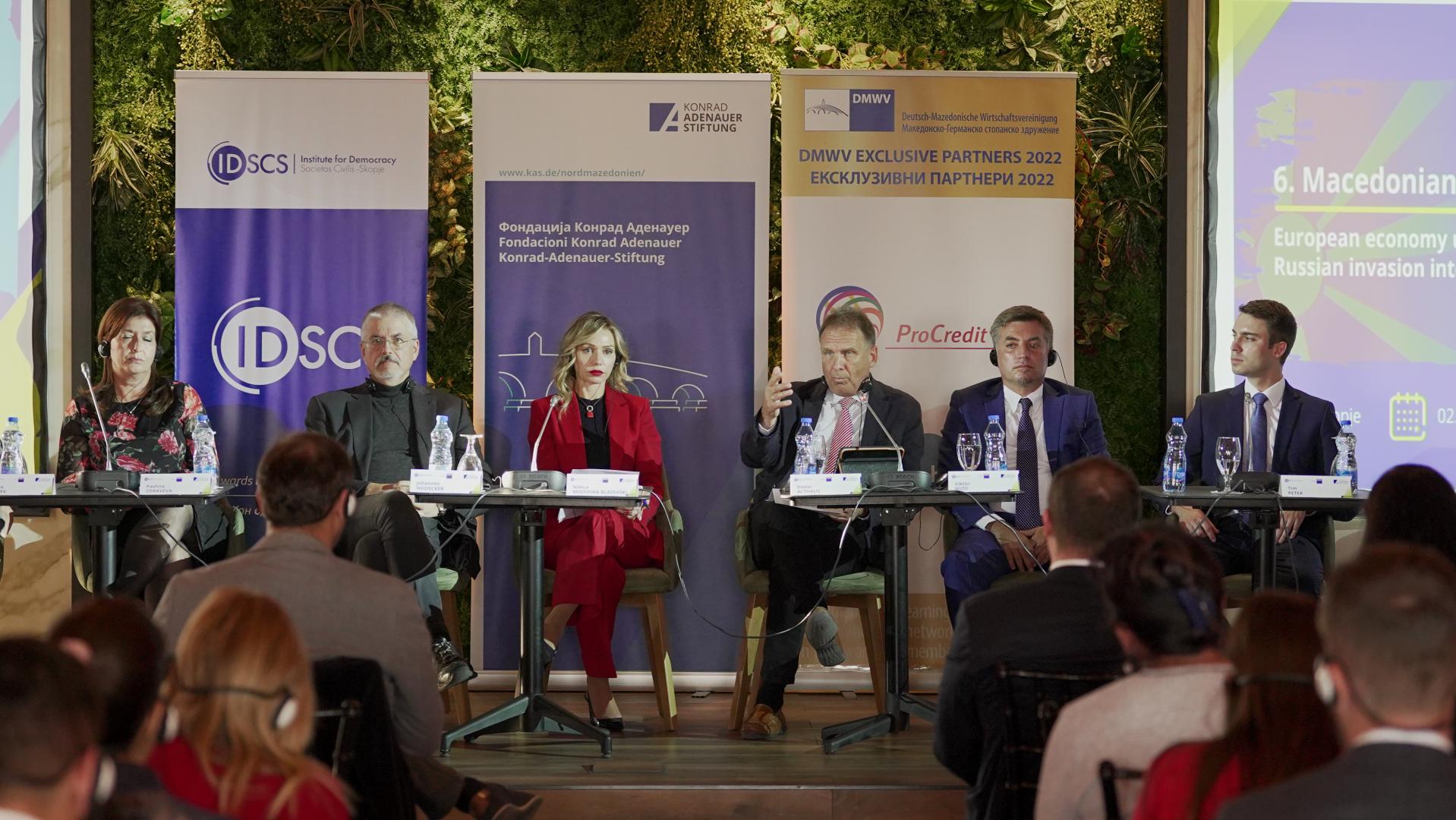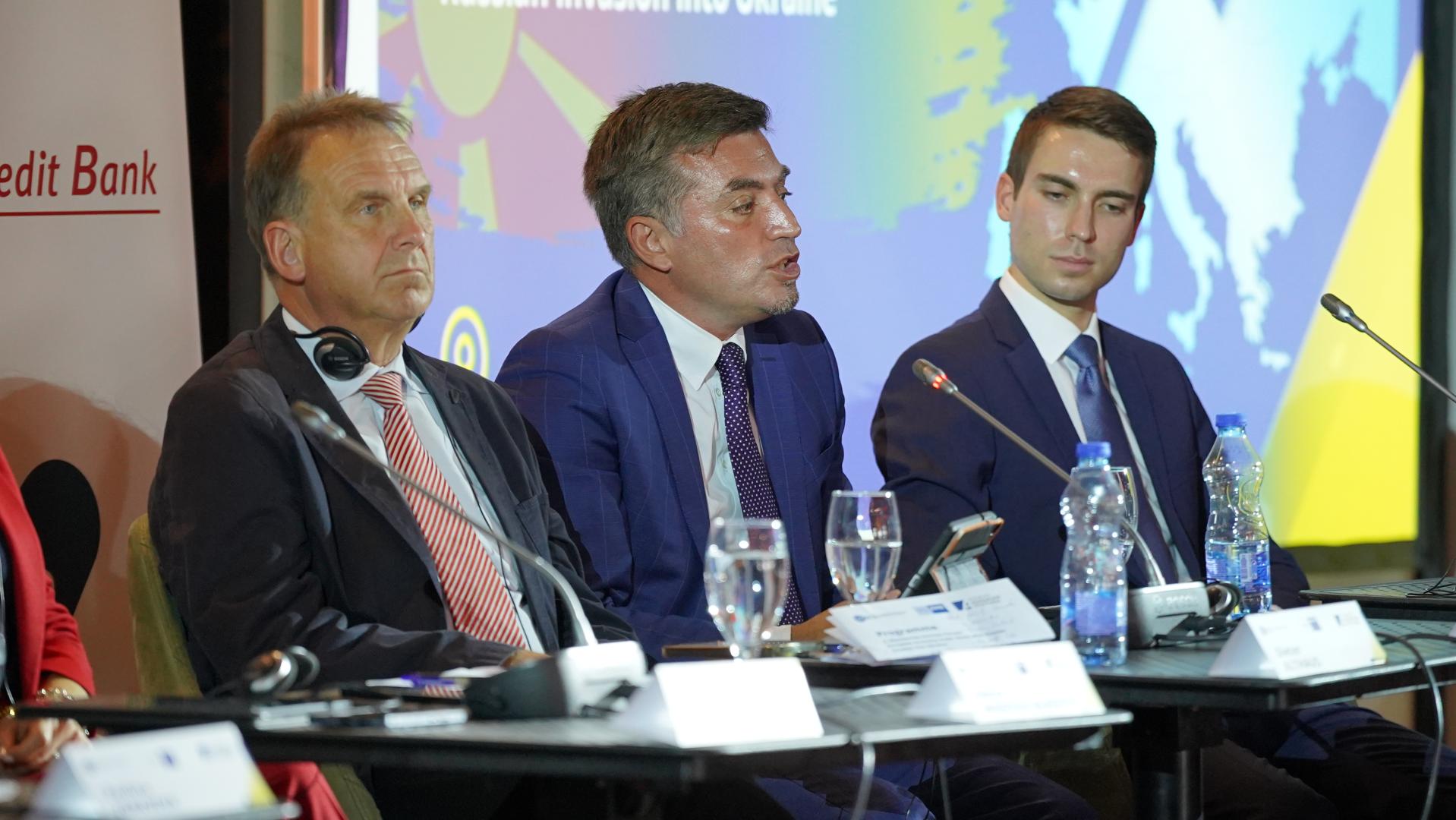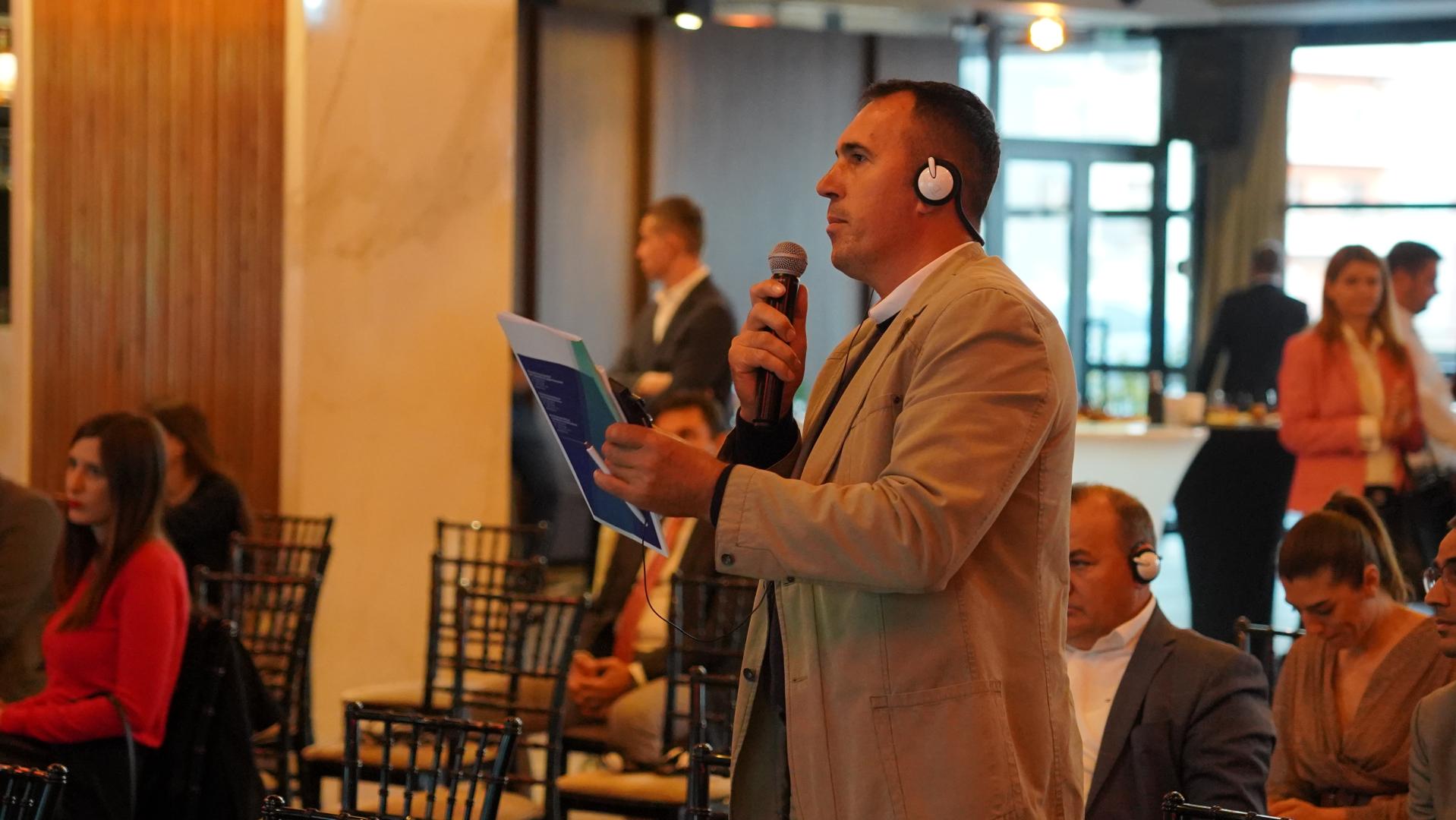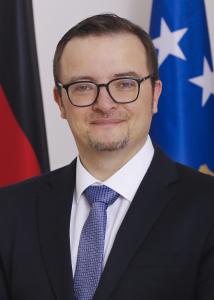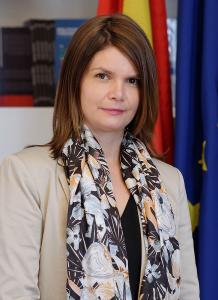The event was opened by Anke Holstein, Ambassador of FR Germany in North Macedonia, Daniel Braun, Director of the Konrad Adenauer Foundation, Dieter Althaus, Vice President of Magna Europe, Patrick Martens, Director of the Delegation of the German Industry and commerce in North Macedonia, Kosovo and Albania and Zoran Nechev from the Institute for Democracy "Societas Civilis".
The ambassador of FR Germany in North Macedonia, Holstein spoke about North Macedonia’s perspective.
"It is no coincidence that the Western Balkans, including the Republic of North Macedonia, is receiving more attention from the German Federal Government than ever before: Our priority is to bring the countries of the Western Balkans into the European Union - to protect peace, stability and economic progress for us and for the future generations. This is also why the German Government revitalized the Berlin Process. Respect and gratitude for the principled position of North Macedonia and its full compliance with the EU positions, including sanctions, welcoming refugees, delivering weapons. Together we stand against Russia's war in Ukraine and we will continue to support Ukraine.” - Anke Holstein, Ambassador of FR Germany in North Macedonia.
Daniel Braun, Director of the Konrad Adenauer Foundation, spoke about the disruption in the economy in Europe.
"The Russian aggression against Ukraine is not only an attack on the international order, but it is confronting Europe and the world with completely new challenges. In addition to energy supply, new production locations as well as the supplier chain are also important for future investments." - Daniel Braun, Director of the Konrad Adenauer Foundation.
Patrick Martens, the Director of the Delegation of the German Industry and Commerce, informed about the situation with the German economy, which plays a significant role, as well as for the further developments in the economy of the entire Western Balkans.
"The disrupted supply chains that were caused by Covid, but also the closure of ports in China show us how vulnerable our domestic industries are. However, with the war in Ukraine, the crisis reached its peak, again disrupting supply chains and skyrocketing energy prices.
Therefore, Southeast Europe, especially the countries from the Western Balkans, are the focus of new supply chains for risk diversification. The trade balance currently with this region is already showing impressive results and it will continue to grow. Previously, there was a demand for companies to which companies from Western Europe would sell services and products, today they are looking for companies in the Western Balkans from which they would buy finished or semi-finished products." - Patrick Martens, Director of the Delegation of the German Industry and Commerce in North Macedonia, Kosovo and Albania.
Zoran Nechev, Institute for Democracy, spoke about the decisions in politics and their implementation in practice when making business decisions.
"Are the political decisions of the German Government based on the lessons learned from the current crisis? An excellent example from practice is the sale of part of the port in Hamburg to a Chinese company. Have we learned the lessons from Covid and from the war in Ukraine in practice, or do they remain only as messages from public debates." - Zoran Nechev, Institute for Democracy “Societas Civilis”.




